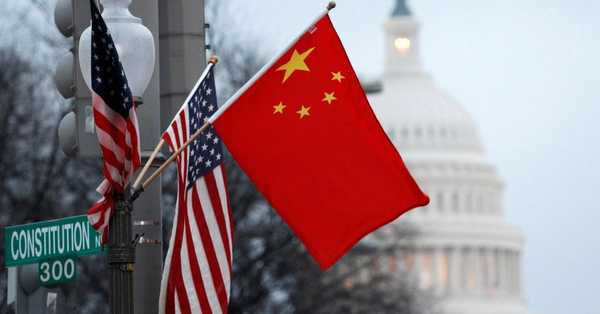Qin will be at the front of efforts by China’s top leader, Xi Jinping, to reshape China’s relationship with Washington, which has spiraled to its lowest point in decades.
Qin will most likely convey to Washington that Xi expects his country to be treated as a great power, reflecting a confidence that stems in part from China’s success in controlling the coronavirus epidemic.
China’s new ambassador to the United States arrived in Washington on Wednesday — Qin Gang, a diplomat whose record of vigorously contesting Western criticism suggests that Beijing is steeling for extended tensions with Washington.In his new role, Qin will be at the front of efforts by China’s top leader, Xi Jinping, to reshape China’s relationship with Washington, which has spiraled to its lowest point in decades. Beijing sees the Biden administration as continuing to challenge China’s rise, and it has pushed back against Washington’s efforts to rally democratic countries to its side.Qin will most likely convey to Washington that Xi expects his country to be treated as a great power, reflecting a confidence that stems in part from China’s success in controlling the coronavirus epidemic. Chinese diplomats showed that emboldened posture this week in talks with the Deputy Secretary of State Wendy Sherman, and in March, when they publicly sparred with Biden administration officials in an unusually rancorous opening encounter in Anchorage.In a message on the Chinese Embassy’s website, Qin said that both countries should “treat each other with mutual respect and equality, and pursue peaceful coexistence and win-win cooperation.”
Unlike nearly all of China’s ambassadors to Washington since the 1980s, Qin has never specialized in dealing with the United States, nor has he been posted there previously. But as the head of the information office of the Chinese Foreign Ministry, and later the chief of protocol, Qin appears to have won the trust of Xi and has regularly accompanied him during trips abroad and in meetings with foreign leaders.“It’s a telling moment,” said Drew Thompson, a former Pentagon official responsible for China.“For the last 20 years you’ve had a string of America experts posted to Washington,” Thompson, who now teaches at the National University of Singapore, said in an interview. “Somebody whose career has been staked more on upholding the dignity and equal treatment of Chinese senior leaders will come to the job potentially with a different mindset.”During Xi’s visit to the United States in 2015, Qin was “willing to ruffle feathers without hesitation when he felt it was necessary,” said Ryan Hass, a senior fellow at the Brookings Institution who was director for China at the National Security Council during Xi’s visit.
“Qin Gang was very attentive to how his leader would be portrayed and the image that his leader’s public appearances would send,” Hass said. “This was particularly the case around President Xi’s state visit to the White House.”As ambassador, Qin will be navigating an increasingly thorny and politically charged relationship. Chinese diplomats have furiously denounced Washington’s sanctions over Xi’s hard-line policies in the far western region of Xinjiang and the city of Hong Kong. But they are also trying to find common ground on international threats like limiting global warming.
Xi, China’s most influential leader in decades, has sought to position Beijing as an increasingly powerful counterweight to an international order dominated by the United States. In internal comments to Communist Party officials last year, he struck an assertive yet measured note about the relationship, saying that “the East is rising and the West is declining,” but that American resilience should not be underestimated.As the Biden administration has signaled it would continue to build alliances around the world to contest China, Xi has warned that Beijing should not be marginalized in global affairs, and is prepared to push back against Western pressure.
“The Chinese people will never allow foreign forces to bully, oppress or enslave us,” he said in speech marking 100 years since the founding of the Chinese Communist Party on July 1. “Whoever nurses delusions of doing that will crack their heads and spill blood on the Great Wall of steel built from the flesh and blood of 1.4 billion Chinese people.”Qin, 55, appears well suited to promoting Xi’s more muscular international stance.His predecessor as ambassador to Washington, Cui Tiankai, vigorously defended China’s policies after taking that post in 2013, but distanced himself from the rancorous rhetoric and COVID conspiracy theories of some rising Chinese diplomats.
“Chinese-U. S. relations are now at a crucial crossroads,” Cui said in a farewell message last month on the Chinese Embassy’s website.Qin has a milder manner than the “wolf warriors,” as China’s more combative diplomats who have recently come to the fore have been called. But as a spokesman for the Foreign Ministry, he set an early example for China’s increasingly pugnacious response to Western pressure.Qin’s appointment may reflect that “the Chinese system seems to be in a phase of favoring unswerving loyalty to the party above diplomatic achievement,” said Daniel Russel, a former American diplomat who is now a vice president at the Asia Society Policy Institute.
China’s new ambassador to U.S. is ‘willing to ruffle feathers’:- Published By The Beyond News (Politics).
